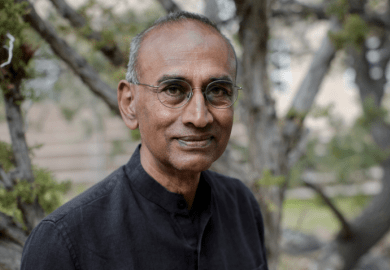Europe’s internationalisation professionals have conveyed an ambivalent vision of their field in a new survey: though most express a high level of job satisfaction, significant minorities simultaneously raise concerns about leadership and organisation.
The European Association for International Education (EAIE) surveyed almost 3,000 internationalisation professionals from across the European Higher Education Area (EHEA) for the third edition of the EAIE Barometer, a series first launched in 2015.
The respondents offered “conflicting signals around leadership and goal achievement”. While almost four-fifths said they believed their institutions’ internationalisation goals were achievable, almost half, when asked if these goals were clearly defined, were either unsure or believed they were not.
Asked about their confidence in leadership for internationalisation at their institutions, two-thirds responded positively; a third, however, said they lacked some degree of faith in their leadership. Similarly, a third of respondents said they were unsatisfied with how internationalisation responsibilities were organised at their institutions, a result the report authors call “concerning”, although 58 per cent said they were either satisfied or very satisfied.
Laura Rumbley, EAIE’s director for knowledge development and research and one of the authors of the report, told Times Higher Education that readers should take into account “individual country differences”, noting: “There are countries where we see high levels of confidence in the leadership responsible for internationalisation, while data from other countries shows a more negative stance.”
Still, she said, “the fact that notable proportions of professionals working on the front lines show signs of dissatisfaction with leadership is an important point for those leaders to reflect on”.
The barometer indicated a significant degree of change – “a constant in our world”, Dr Rumbley said. While almost three-quarters of respondents reported more than five years of experience in the sector, less than half had been in their current roles for more than that. A potential, though undetermined, cause was Covid-19, Dr Rumbley posited: “The pandemic certainly threw ‘business as usual’ out the window for many institutions, which likely had a direct impact on the professional workforce in international higher education.”
Nevertheless, almost 80 per cent of respondents said they expected to remain in the field in the next three years, with a slightly lower proportion – 65 per cent – anticipating that they would remain at the same institutions. The vast majority – 91 per cent – said they were either satisfied or very satisfied with their jobs overall, although dissatisfaction entered the frame in areas familiar to many higher education professionals: 40 per cent were unsatisfied with their compensation levels, and 30 per cent with their work-life balance.
The report also reflected a continued trend away from centralisation, with only 24 per cent of respondents reporting that their institutions had single central teams responsible for internationalisation. In 2018, this figure stood at 35 per cent; in 2015, 51 per cent.
While the trend’s meaning is “still open to interpretation”, Dr Rumbley said, it could indicate an “ongoing ‘maturing’ and mainstreaming of internationalisation in the European Higher Education Area context”.
“Where attention to internationalisation was more commonly placed in the hands of specialised teams, the field is now also recognising the value of embedding internationalisation throughout everything an institution does,” she said.
Register to continue
Why register?
- Registration is free and only takes a moment
- Once registered, you can read 3 articles a month
- Sign up for our newsletter
Subscribe
Or subscribe for unlimited access to:
- Unlimited access to news, views, insights & reviews
- Digital editions
- Digital access to THE’s university and college rankings analysis
Already registered or a current subscriber? Login








